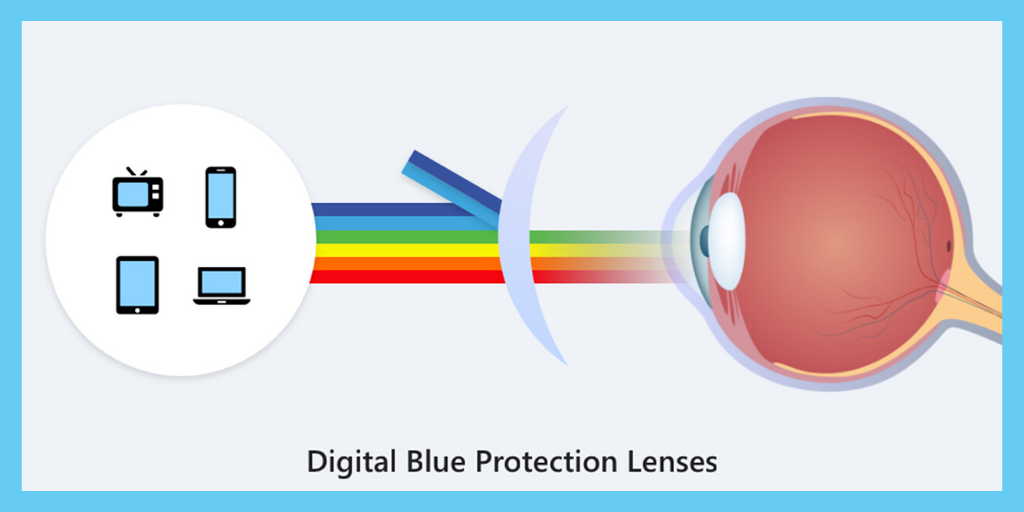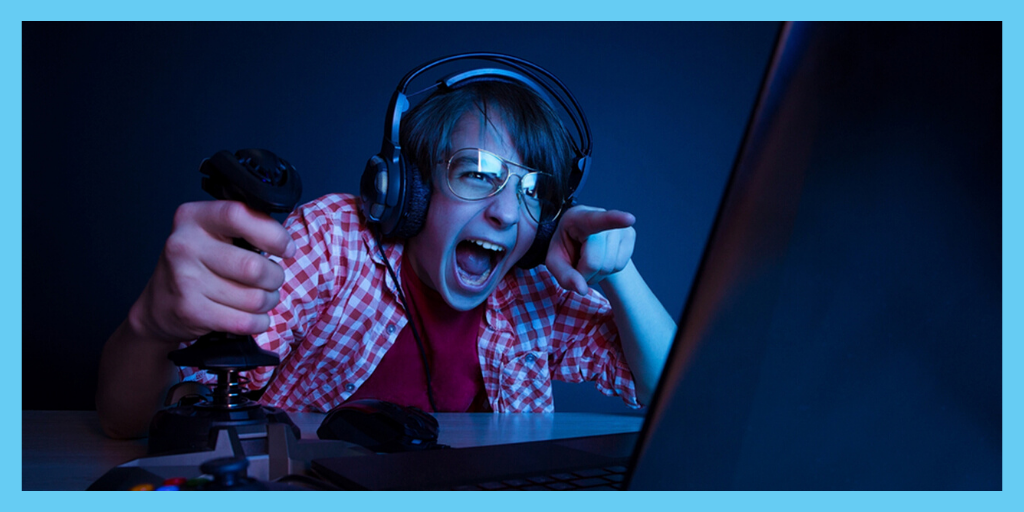Blue Light Glasses: Do They Live Up to the Hype?
This post was last updated on May 3rd, 2024

If you’re reading this, you are sure to know of the hype around blue light glasses!
And almost one too many times, you are sure to have come across adverts for these miracle spectacles. But do these blue light glasses live up to their names?
Read on to find out.
What are blue light glasses?
At one point, everybody has thought of buying blue light glasses because their job demands them to spend a long time in front of their screens. But what exactly are these?
Blue light glasses are glasses with special lenses that protect your eyes from blue light. Blue light waves are a component of the visible region of the Electromagnetic Spectrum. And they are produced by screens of all electronic devices, be it phones, tablets, televisions or laptops. While the sun and sky also emit blue light, blue light from screens can cause damage to the eye and disrupt a person’s circadian rhythm. This happens due to a variety of reasons. Constant exposure to High Energy Visible Blue Light (HEV) can cause damage to the retinal cells because blue light can pass through the cornea and the lens (unlike UV light). This means that you can cause problems for your eyes if you are using devices that emit blue light. Blue light has been shown to suppress the production of melatonin in the body, leading to sleeplessness and disruption of the body’s biological clock.
Blue light glasses work to reflect these HEV blue light waves and decrease the amount of blue light reaching your retina.
Why do you need blue light glasses?
The average millennial has a daily screen time of 10 hours a day while most office employees average screen times of around 4-6 hours a day. The increasing popularity of the new Work/Study from Home culture means these averages aren’t going to reduce anytime soon.
The screen time averages are enough to answer the above question! You need blue light glasses as long as you’re working on screens. And this is irrespective of the fact that you may already have prescription glasses!
Scientifically, long periods of blue light exposure have shown to increase digital eye strain and dry eye. Research has also shown that blue light exposure has a significant impact on eye problems like age-related macular degeneration, early-onset cataracts, pinguecula, retinal degradation, pterygium and many other vision problems. Moreover, links between blue light exposure and obesity and certain types of cancers have also been found although they are yet to be confirmed. And these reasons make buying blue light glasses all the more necessary.

Are these glasses effective?
Blue light glasses filter blue light and reduce eye strain, exhaustion and headaches while also keeping our eyes lubricated. This statement is something we are told countlessly by local opticians and optometrists. But are these that effective?
The answer is somewhere in the between. Research shows that blue light glasses indeed decrease the wearer’s chance of developing ophthalmologic conditions and vision problems. Although they help tremendously, they are less than likely to minimize all the effects of constant blue light exposure.
But ophthalmologists recommend that wearing them is better than wearing anything at all!

Where can you find blue light glasses?
Blue light glasses are available everywhere. Your local opticians, as well as renowned optometrists in your area, are sure to have these glasses in stock. Numerous online stores also provide good quality blue-light protection glasses at an extremely affordable price!
Specscart, an online eyewear retailer, has some of the widest collections of frames to choose from. And the best part, Specscart allows users to buy prescription as well as non-prescription glasses with blue light protection. You can also go to the anti-blue light glasses page and see more on how to buy glasses online!
If you already have a pair of anti-blue light glasses and are still having vision problems, it’s time you schedule an eye test or check-in with your ophthalmologist.
You may like this
Recommended For You
TENS and EMS Combo Unit
Most Inside
Most Inside offers high-quality recommendations and valuable updates to enhance all aspects of your life, providing premium guidance and enriching experiences.




